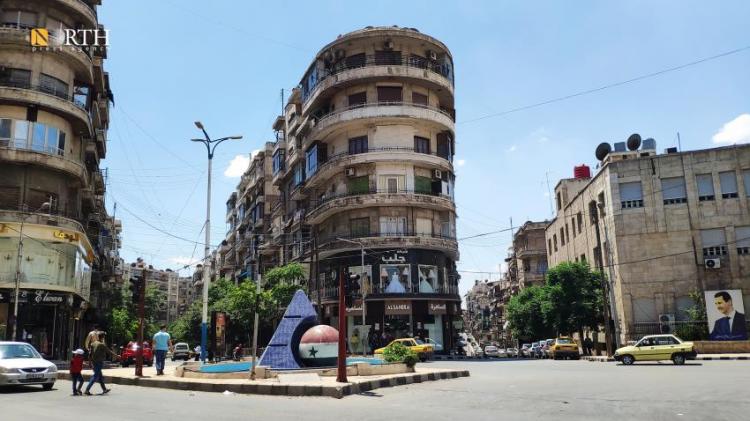ALEPPO, Syria – (North Press) – Syrian security agencies prevent residents in Aleppo, northern Syria, from disposing of property of their relatives residing outside Syria, despite them having power of attorney. Occasionally, security forces will cease homes and station themselves in the families’ houses.
Usually these owners of these properties are wanted on charges of desertion from mandatory military service or reserve service, or their names are in the lists of wanted persons for security branches.
Many residents of Aleppo and its countryside have returned to their homes and to their relatives' houses after the Syrian government forces regained control over these areas in early 2020.
Nabil Suleiman, a resident of the village of Hayyan in the northern Aleppo countryside, told North Press he sold land owned by his brother in order to renovate his house in the village. He was surprised to learn when transferring the ownership of the real estate to the buyer, that the land could not be sold because it was property of the Syrian government, because his brother who lives outside the country is required for mandatory military service.
Suleiman pointed out that he possesses a certified power of attorney. "It is supposed to allow me to dispose of my brother's property, but this did not help me to transfer the property to someone else, and no one is allowed to dispose of the land," he said.
"One of the security branches previously arrested me because I plowed my brother's land, and the charge was that I caused damage to the soil and crops, and the fate of this land is still pending."
During the war years, the Syrian security forces arrested many of those wanted during their visits to official departments in order to conduct transactions or register university students.
Bassam al-Ahmad (pseudonym) told North Press that he could not transfer ownership of his cousin's house to the new owner, "because my cousin is wanted by the security branches to settle his situation, and the house is still at the disposal of the security branch…the real estate department and the court do not accept the power of attorney because he is outside Syria.”
"What the security branches do is a new way to own homes by force, not by law, because there is no provision that prevents a person holding power of attorney from transferring ownership to another person."
According to residents who were prevented from disposing of the property of their relatives, the security apparatus housed families belonging to the security branches in some of these homes.
Lawyer Qusay Attar told North Press there is an oral circular that prevents all power of attorneys from using the property of all wanted persons without exception.
He added that the families of those who went out during the ongoing war in Syria face a big problem in this regard, and the most common issue is the reserve service for young people. This is in addition to some security branches which seize the houses until the status of the owner of the house is settled."
Attar thinks the solution is that the one who holds power of attorney should sell or dispose the property of the wanted persons by a court order through the trade register until the situation is resolved.
He added, "However, this matter is also complicated and the owner needs to pay money to get security approval to obtain court approval and continue the sale."

